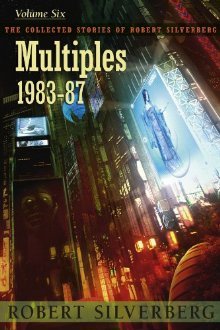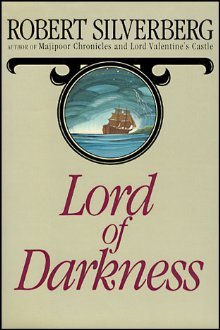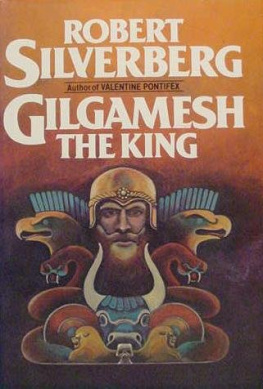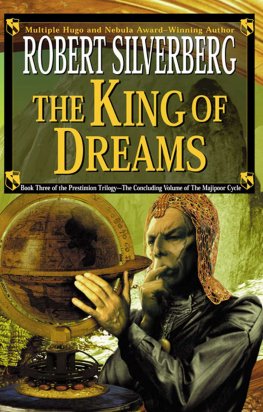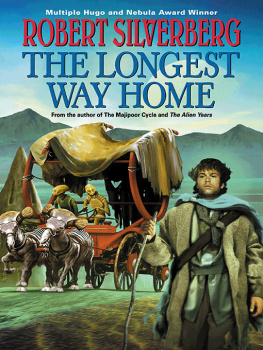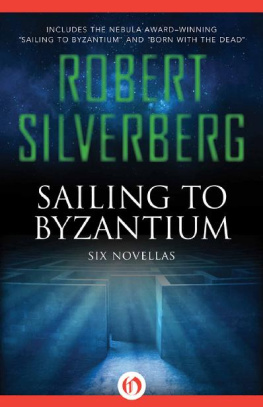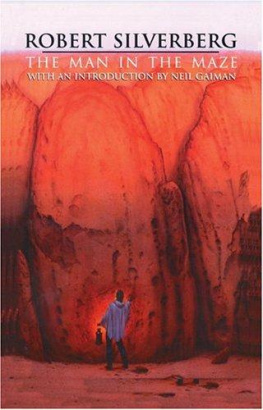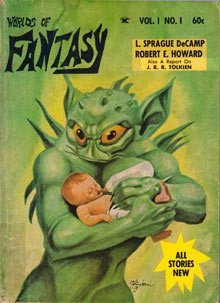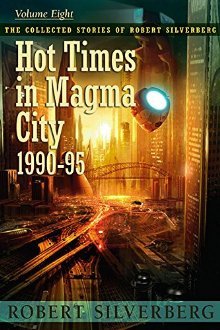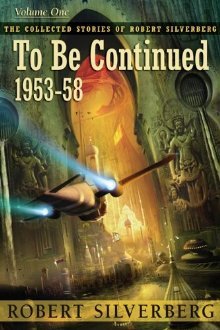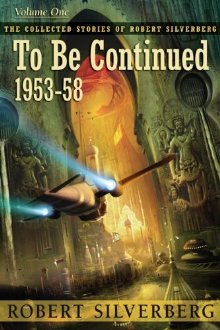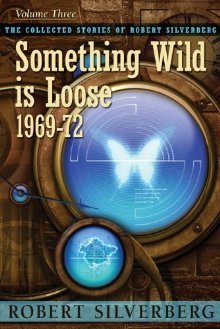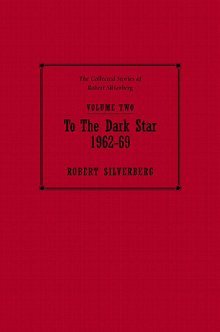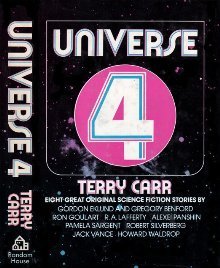Robert Silverberg - The Iron Star
Here you can read online Robert Silverberg - The Iron Star full text of the book (entire story) in english for free. Download pdf and epub, get meaning, cover and reviews about this ebook. year: 2011, publisher: Subterranean Press, genre: Science fiction. Description of the work, (preface) as well as reviews are available. Best literature library LitArk.com created for fans of good reading and offers a wide selection of genres:
Romance novel
Science fiction
Adventure
Detective
Science
History
Home and family
Prose
Art
Politics
Computer
Non-fiction
Religion
Business
Children
Humor
Choose a favorite category and find really read worthwhile books. Enjoy immersion in the world of imagination, feel the emotions of the characters or learn something new for yourself, make an fascinating discovery.
- Book:The Iron Star
- Author:
- Publisher:Subterranean Press
- Genre:
- Year:2011
- ISBN:978-1-59606-402-7
- Rating:4 / 5
- Favourites:Add to favourites
- Your mark:
- 80
- 1
- 2
- 3
- 4
- 5
The Iron Star: summary, description and annotation
We offer to read an annotation, description, summary or preface (depends on what the author of the book "The Iron Star" wrote himself). If you haven't found the necessary information about the book — write in the comments, we will try to find it.
The Iron Star — read online for free the complete book (whole text) full work
Below is the text of the book, divided by pages. System saving the place of the last page read, allows you to conveniently read the book "The Iron Star" online for free, without having to search again every time where you left off. Put a bookmark, and you can go to the page where you finished reading at any time.
Font size:
Interval:
Bookmark:
The Iron Star
by Robert Silverberg
The alien ship came drifting up from behind the far side of the neutron star just as I was going on watch. It looked a little like a miniature neutron star itself: a perfect sphere, metallic, dark. But neutron stars dont have six perky little out-thrust legs and the alien craft did.
While I paused in front of the screen the alien floated diagonally upward, cutting a swathe of darkness across the brilliantly starry sky like a fast-moving black hole. It even occulted the real black hole that lay thirty light-minutes away.
I stared at the strange vessel, fascinated and annoyed, wishing I had never seen it, wishing it would softly and suddenly vanish away. This mission was sufficiently complicated already. We hadnt needed an alien ship to appear on the scene. For five days now we had circled the neutron star in seesaw orbit with the aliens, a hundred eighty degrees apart. They hadnt said anything to us and we didnt know how to say anything to them. I didnt feel good about that. I like things direct, succinct, known.
Lina Sorabji, busy enhancing sonar transparencies over at our improvised archaeology station, looked up from her work and caught me scowling. Lina is a slender, dark woman from Madras whose ancestors were priests and scholars when mine were hunting bison on the Great Plains. She said, You shouldnt let it get to you like that, Tom.
You know what it feels like, every time I see it cross the screen? Its like having a little speck wandering around on the visual field of your eye. Irritating, frustrating, maddeningand absolutely impossible to get rid of.
You want to get rid of it?
I shrugged. Isnt this job tough enough? Attempting to scoop a sample from the core of a neutron star? Do we really have to have an alien spaceship looking over our shoulders while we work?
Maybe its not a spaceship at all, Lina said cheerily. Maybe its just some kind of giant spacebug.
I suppose she was trying to amuse me. I wasnt amused. This was going to win me a place in the history of space exploration, sure: Chief Executive Officer of the first expedition from Earth ever to encounter intelligent extraterrestrial life. Terrific. But that wasnt what IBM/Toshiba had hired me to do. And Im more interested in completing assignments than in making history. You dont get paid for making history.
Basically the aliens were a distraction from our real work, just as last months discovery of a dead civilization on a nearby solar system had been, the one whose photographs Lina Sorabji now was studying. This was supposed to be a business venture involving the experimental use of new technology, not an archaeological mission or an exercise in interspecies diplomacy. And I knew that there was a ship from the Exxon/Hyundai combine loose somewhere in hyperspace right now working on the same task wed been sent out to handle. If they brought it off first, IBM/Toshiba would suffer a very severe loss of face, which is considered very bad on the corporate level. Whats bad for IBM/Toshiba would be exceedingly bad for me. For all of us.
I glowered at the screen. Then the orbit of the Ben-wah Maru carried us down and away and the alien disappeared from my line of sight. But not for long, I knew.
As I keyed up the log reports from my sleep period I said to Lina, You have anything new today? She had spent the past three weeks analysing the dead-world data. You never know what the parent companies will see as potentially profitable.
Im down to hundred-meter penetration now. Theres a system of broad tunnels wormholing the entire planet. Some kind of pneumatic transportation network, is my guess. Here, have a look.
A holoprint sprang into vivid life in the air between us. It was a sonar scan that we had taken from ten thousand kilometers out, reaching a short distance below the surface of the dead world. I saw odd-angled tunnels lined with gleaming luminescent tiles that still pulsed with dazzling colors, centuries after the cataclysm that had destroyed all life there. Amazing decorative patterns of bright lines were plainly visible along the tunnel walls, lines that swirled and overlapped and entwined and beckoned my eye into some adjoining dimension.
Trains of sleek snub-nosed vehicles were scattered like caterpillars everywhere in the tunnels. In them and around them lay skeletons, thousands of them, millions, a whole continent full of commuters slaughtered as they waited at the station for the morning express. Lina touched the fine scan and gave me a close look: biped creatures, broad skulls tapering sharply at the sides, long apelike arms, seven-fingered hands with what seemed like an opposable thumb at each end, pelvises enlarged into peculiar bony crests jutting far out from their hips. It wasnt the first time a hyperspace exploring vessel had come across relics of extinct extraterrestrial races, even a fossil or two. But these werent fossils. These beings had died only a few hundred years ago. And they had all died at the same time.
I shook my head somberly. Those are some tunnels. They might have been able to convert them into pretty fair radiation shelters, is my guess. If only theyd had a little warning of what was coming.
They never knew what hit them.
No, I said. They never knew a thing. A supernova brewing right next door and they must not have been able to tell what was getting ready to happen.
Lina called up another print, and another, then another. During our brief fly-by last month our sensors had captured an amazing panoramic view of this magnificent lost civilization: wide streets, spacious parks, splendid public buildings, imposing private houses, the works. Bizarre architecture, all unlikely angles and jutting crests like its creators, but unquestionably grand, noble, impressive. There had been keen intelligence at work here, and high artistry. Everything was intact and in a remarkable state of preservation, if you make allowances for the natural inroads that time and weather and I suppose the occasional earthquake will bring over three or four hundred years. Obviously this had been a wealthy, powerful society, stable and confident.
And between one instant and the next it had all been stopped dead in its tracks, wiped out, extinguished, annihilated. Perhaps they had had a fraction of a second to realize that the end of the world had come, but no more than that. I saw what surely were family groups huddling together, skeletons clumped in threes or fours or fives. I saw what I took to be couples with their seven-fingered hands still clasped in a final exchange of love. I saw some kneeling in a weird elbows-down position that might have been one ofwho can say? Prayer? Despair? Acceptance?
A sun had exploded and this great world had died. I shuddered, not for the first time, thinking of it.
It hadnt even been their own sun. What had blown up was this one, forty light-years away from them, the one that was now the neutron star about which we orbited and which once had been a main-sequence sun maybe three or four times as big as Earths. Or else it had been the other one in this binary system, thirty light-minutes from the first, the blazing young giant companion star of which nothing remained except the black hole nearby. At the moment we had no way of knowing which of these two stars had gone supernova first. Whichever one it was, though, had sent a furious burst of radiation heading outward, a lethal flux of cosmic rays capable of destroying most or perhaps all life-forms within a sphere a hundred light-years in diameter.
The planet of the underground tunnels and the noble temples had simply been in the way. One of these two suns had come to the moment when all the fuel in its core had been consumed: hydrogen had been fused into helium, helium into carbon, carbon into neon, oxygen, sulphur, silicon, until at last a core of pure iron lay at its heart. There is no atomic nucleus more strongly bound than iron. The star had reached the point where its release of energy through fusion had to cease; and with the end of energy production the star no longer could withstand the gravitational pressure of its own vast mass. In a moment, in the twinkling of an eye, the core underwent a catastrophic collapse. Its matter was compressedbeyond the point of equilibrium. And rebounded. And sent forth an intense shock wave that went rushing through the stars outer layers at a speed of 15,000 kilometers a second.
Font size:
Interval:
Bookmark:
Similar books «The Iron Star»
Look at similar books to The Iron Star. We have selected literature similar in name and meaning in the hope of providing readers with more options to find new, interesting, not yet read works.
Discussion, reviews of the book The Iron Star and just readers' own opinions. Leave your comments, write what you think about the work, its meaning or the main characters. Specify what exactly you liked and what you didn't like, and why you think so.

